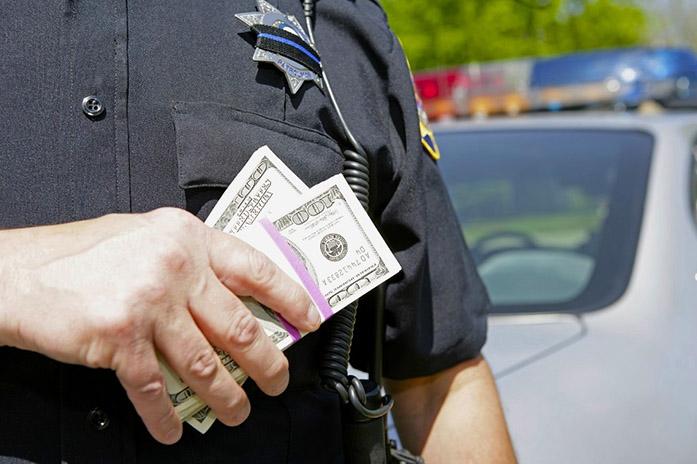In December 2015, the Iowa Supreme Court issued a ruling in favor of the defendant on a case dealing with Iowa’s controversial police forfeiture law. In the case, an individual was found to be carrying a small amount of marijuana; as a result, the police seized the $33,100 in cash the individual was carrying. Though possessing small amounts of a controlled substance is illegal, carrying large amounts of cash is not. As the tired saying goes: Correlation does not mean causation.
Thus, according to a Des Moines Register report, the defense heralded the case as representative of a “systemic exploitation by law enforcement, specifically the Iowa State Patrol, of the routine traffic stop for purposes of engaging in suspicion-less general criminal investigations” as a means of seizing cash for departmental gain under Iowa’s forfeiture law.
What exactly is the forfeiture law? Essentially, forfeiture is a perfectly legal act in which the police and other such authorities can seize cash or property that they deem to be connected to criminal activity.
The mentality behind this being an individual has a bag of weed and a couple hundred dollars in his pocket. So, they must have made that couple hundred dollars by selling the other bags of weed that we assume the individual to have possessed before we stopped them. These seizures are rooted entirely in the faith in a crime that has yet to be proven. And whether it can be proven or not, it is perfectly legal to seize the cash in hand, regardless as to whether it was earned legally.
In this context, the ruling in December 2015 in favor of the defendant would be expected to curb the practice of this sketchy law. It seems it has not. The frequency of the practice has remained, if not gotten worse.
On Sunday, more data on the issue were released by the Des Moines Register. The report reads that “more than $55 million in cash, in amounts ranging from 34 cents to nearly $2.6 million, has been seized from 19,000 people since 1985” under the law. Around $34 million of this has been collected in this decade alone.
The bulk of the affected individuals in this report were never charged with a crime and some were intimidated by costly court fines if they were to contest these seizures in court.
According to another report by the Register, the money is used to “buy equipment, train officers, and fund multiagency task forces. But it also has been spent on tropical fish, scented candles, mulch, and other items that appear to have little or no direct link to law-enforcement activities.”
You could call it overreaching, or you could call it extortion. Either way, it seems to be a problem. Where the thirst for this extra revenue comes from is hard to say without speculation, but what does remain as objective fact is that running a modern police force is costly. According to the General Fund Summary published by the city of Iowa City, our police force alone is projected to spend just shy of $14 million annually.
In 2014, the Johnson County Sheriff’s Office spent just under $1 million on an “MRAP,” a six-wheeled, armor-plated truck designed to withstand land mines. As stated earlier, correlation doesn’t mean causation, but the facts are damning.
Our local police forces spend obscene amounts of money on equipment fit for a battlefront while seizing cash from individuals, rarely even charged with a crime, on our highways.
The Daily Iowan Editorial Board believes in the necessity of forfeiture reform in the state. If police departments statewide wish to spend their money like warlords, they should find the money elsewhere and stay out of citizens’ pockets.









